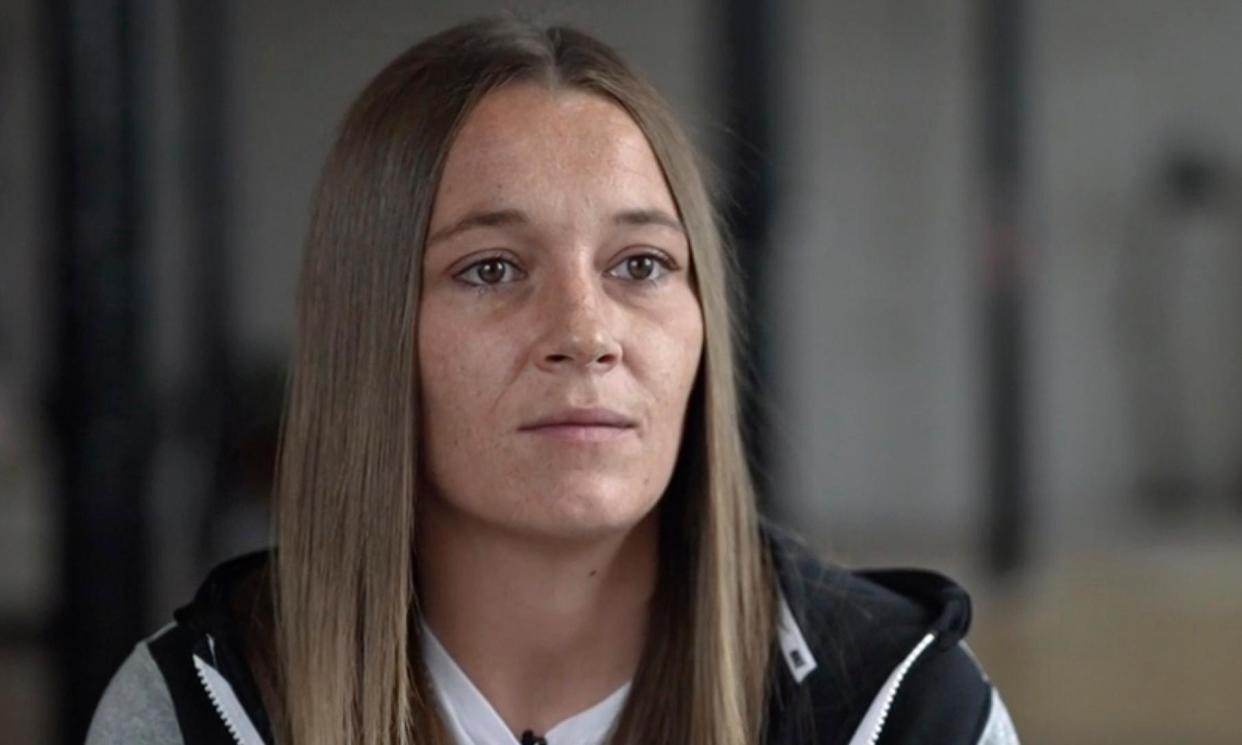Woman whose baby was stillborn in HMP Styal praises sentencing changes

A former prisoner who gave birth to a stillborn baby in a jail toilet has welcomed changes that campaigners hope will reduce the number of pregnant women locked up, as a “legacy” for the daughter she lost.
The Sentencing Council is announcing significant new guidance on Monday that judges and magistrates in England and Wales must consider before passing sentences on pregnant women and new mothers. A new mitigating factor in sentencing has been introduced – pregnancy, childbirth and postnatal care – which replaces current guidance relating to this group of women who currently come under the broader heading of “sole or primary carer”.
Campaigners have hailed the change as “a huge milestone” in their work to end the jailing of pregnant women and new mothers.
The case of Louise Powell, 33, generated profound concern when news emerged that she had given birth to a stillborn baby, Brooke Powell, in a prison toilet in June 2020 at HMP Styal. It followed the death of baby Aisha Cleary who was delivered by her mother, Rianna Cleary, alone in her prison cell at HMP Bronzefield in September 2019.
Related: The tragedy of Rianna and baby Aisha: why a teenager gave birth all alone in a prison cell
Powell said she believed her baby girl could have survived had she had more timely and appropriate medical intervention.
She said: “I am very pleased that the system is being changed so that no other mother has to lose their baby in prison. Brooke is always in my heart and I hope that her legacy is a longstanding change to the imprisonment of pregnant women.
“I hope that the changes to guidance mean fewer pregnant women are sent to prison. If not, there is a real risk that women in labour will be left begging for help the way I was and will pay the ultimate price. If my daughter Brooke had been born in the community, she would be here today. No woman should have to give birth behind bars.”
One woman who was jailed seven years ago for three months when in the early stages of pregnancy, despite her offence being nonviolent and pre-sentencing reports recommending a non-custodial sentence, told the Guardian: “The horror has stayed with me. It feels like yesterday. I’ve had therapy for PTSD because of my experience of being pregnant in prison where I did not get the care I needed.”
Janey Starling, of the campaigning organisation Level Up, said of the announcement: “This is a huge milestone in our campaign to end the imprisonment of pregnant women. We are glad the Sentencing Council have listened to us and now recognise the devastating risk and harm that prison causes to pregnant women, mothers and infants. This change has the power to transform lives.”
Naomi Delap, the director of Birth Companions, a charity specialising in pregnancy and early motherhood in prison, said: “This is a huge step forward by the Sentencing Council, and a clear acknowledgment of the risks the prison system poses to pregnant women, new mothers and their babies.”
She added that this change should result in fewer pregnant women and mothers being sent to prison.
Extensive evidence has highlighted the significant risks posed to the lives of women and their babies in custody, which are recognised by the NHS, Royal College of Midwives and Royal College of Obstetricians and Gynaecologists. Since the deaths of babies Aisha Cleary and Brooke Powell, the NHS has categorised all pregnancies in prison as “high-risk” because of the nature of the custodial environment.
The new mitigating factor, which will apply from 1 April 2024, requires those sentencing to take into account the impact of a sentence on a woman’s physical or mental health and on the baby. It also makes specific reference to the harmful impacts of separating a mother and child in the first two years of life.
Also announced on Monday are changes to the manslaughter guidelines introducing a new aggravating factor, “use of strangulation, suffocation or asphyxiation”, to ensure the seriousness of these actions are not overlooked.
Amendments to fraud guidelines give more recognition to the impact on victims even where there is no or very little financial loss and amendments to the guidelines for sentencing individuals for fly-tipping and other environmental offences place greater emphasis on community orders rather than fines.


